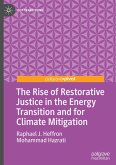The increasingly interconnected, fast-moving, unmanageable and unpredictable world brings with it an unprecedented variety of known and as yet unknown challenges and risks. Some of the global risks have a direct impact on critical infrastructures as well as those of energy supply in particular. A high level of functionality of critical infrastructures (CRITIS), which include the sectors of energy, information technology and telecommunications, transportation and traffic, health, water, food, finance and insurance, government and administration, as well as media and culture, is indispensable for a modern industrial society. In the context of the Corona crisis of 2020/2021, the worldwide inadequate preparation for pandemics became obvious, although the probability of epidemic outbreaks and their global spread has increased significantly in recent decades and was thus predictable to a certain extent. Moreover, it has been shown that in a globally interconnected world, complex crisisphenomena can mutually amplify and thus escalate within a short period of time. In particular, the deficits in preparedness for major risks that became apparent in the course of the Corona pandemic cannot be managed by nation states alone, especially since the probability of such events has risen continuously in recent decades and will continue to increase with growing globalization and urbanization and, in particular, as a result of climate change and its consequences. This publication addresses the challenges of energy resilience and climate protection, which will require immense attention in the future.
Bitte wählen Sie Ihr Anliegen aus.
Rechnungen
Retourenschein anfordern
Bestellstatus
Storno








